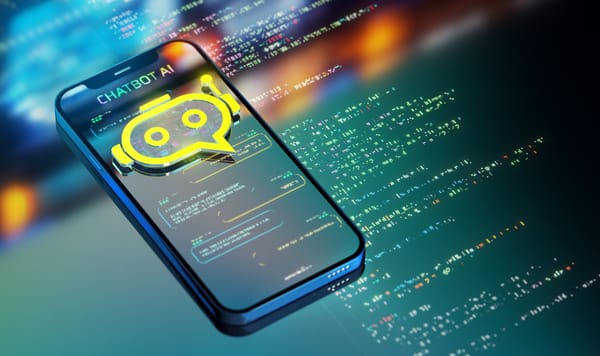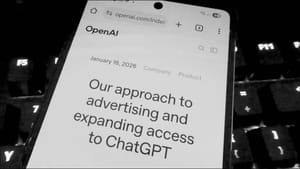When I published my post "Whose English Does AI Speak?" back in May, I asked a simple but important question: if generative AI tools like ChatGPT are trained on vast amounts of written English, whose English is it really learning? And more importantly, whose English is it reinforcing?
An article last month from The Verge picks up a related thread but goes even further. Titled "You Sound Like ChatGPT," it explores how AI isn’t just changing how we write – it’s changing how we speak, behave, and relate to one another. It’s a fascinating, and slightly unsettling, read.
What The Verge describes is the emergence of a new kind of linguistic conformity, one shaped not by people but by algorithms. Phrases like "delighted to connect" or "I hope this email finds you well" – once harmless platitudes – are now digital tells. Then there's the word "delve" which, says The Verge, is a neon sign in the middle of every conversation flashing "ChatGPT was here."
(And, no, I'm not going to 'delve' into the tiresome em-dash debate at all.)
In sum, notes The Verge, you don’t really sound professional. You sound… like ChatGPT.
The Rise of the AI Voice
It’s no surprise, really. We’ve begun to outsource not just the drafting of our words, but the tone of our interactions. And that tone is increasingly polished, polite, and emotionally supportive. It’s the default setting for AI communication, designed to offend no one, accommodate everyone, and stay squarely in the realm of “safe.” But what’s being lost in the process?
This is where I see a powerful connection with the point I raised in May: generative AI tends to reflect American linguistic norms, often at the expense of regional voices, cultural nuance, or plain old informality. In trying to sound universal, it sounds uniform.
What The Verge highlights is that this isn’t just an issue of spelling or vocabulary – it’s about behaviour. Language is identity. When AI starts nudging us towards a bland, globally neutral English, it doesn’t just flatten our emails. It flattens us.
Here in the UK, and across the English-speaking world, people speak with richness, with variety, and with emotional texture. There’s Geordie banter, Irish warmth, Aussie bluntness, Caribbean rhythm, and many more. And let's include a fascinating new one: Euro English.
AI, as it stands, doesn't get any of that. Instead, we get what The Verge's article calls "smoothed-over language designed for universal acceptance."
Or as I might put it: English without any of the rich flavours.
Sharpen, Don’t Standardise
We now face a critical question: how do we use these tools without letting them use us? As writers, communicators, and everyday language users, we need to stay alert to the subtle shifts AI is making to how we express ourselves. That includes resisting the urge to "sound professional" when what we unknowingly mean is "sound like ChatGPT."
There’s still time to choose human over homogeneous. We can work with these tools – use them to sharpen, not standardise. But that starts with awareness. And with a simple decision: to keep our voices, accents, and personalities alive in a world that’s increasingly automated.
Because the important question isn’t just "Whose English does AI speak?" It’s becoming: "Whose behaviour does it teach?"
Related Reading:
- Whose English Does AI Speak? (12 May 2025)
- The Case for Politeness, Even with AI (7 March 2025)




















